Kalpana Pathak in Mumbai
The Indian Institutes of Management (IIMs) are set to get what they have been waiting for nearly 50 years, that is, since their inception: Licence to operate independently.
The Ministry of Human Resource Development, say senior officials, has decided to give up some of its powers to IIMs. This includes the power to select own directors and chairmen and pay the faculty as desired.
"We have decided that the autonomy of IIMs should be enhanced through amendments in the memorandum of articles (MoA). For instance, the process of appointment of the chairperson and the board is not very transparent and gives a lot of power to the ministry.
Now, we are saying that the institutes have a better idea of their culture and can take care of such selections. They will suggest the names and the ministry will appoint the officials," said a ministry official.
...
Finally, IIMs to get autonomy
Image: IIM Bangalore.The IIMs are governed by an MoA approved by the government. IIM-Bangalore, IIM-Lucknow, IIM-Indore and IIM-Kozhikode have already started the process of changing the MoA.
Among the changes proposed, IIMs will be able to trim the board size from over 26 at present to 14, appoint alumni members on the board and decide the pay structure of staff and faculty independent of pay commissions.
...
Finally, IIMs to get autonomy
Image: IIM Kozhikode.The board size has been changed taking into account how international institutions such as the Harvard University work.
"There used to be about 11 government nominees on IIM boards, which has been reduced to two, bringing the board size to 14. We are now looking at a bottoms-up approach," said the official.
IIM-Bangalore director Pankaj Chandra said: "The new framework will give IIM-B greater autonomy. Now, we won't have to wait for years to seek approval for various initiatives.
We will also be able to attract better international faculty by paying more."
Chandra was a member of the Bhargava committee on governance of IIMs.
The changes are based on the recommendations of the three committees - on governance, faculty and funding - constituted by human resource development minister Kapil Sibal in 2010.
...
Finally, IIMs to get autonomy
Image: IIM Lucknow.While the task force on governance was headed by Maruti Suzuki India chairman R C Bhargava, Ajit Balakrishnan, founder, chairman and CEO, Rediff.com, headed the task force on faculty.
The group on funding was headed by Hari Bhartia, co-chairman and MD, Jubilant Organosys, and president of the Confederation of Indian Industry.
The chairman of one of the committees told Business Standard, "The ministry has asked each IIM to bring the changes necessary to become a world-class institute. A new model of governance is needed. It is not about privatisation of IIMs."
...
Finally, IIMs to get autonomy
Image: IIM Calcutta auditorium.The ministry, concerned about the research work at IIMs, has also decided to grant Rs 95 crore (Rs 950 million) to quadruple the research output in the next three-five years.
Each fellowship student costs IIMs around Rs 30 lakh (Rs 300 million).
The ministry has also decided that each faculty member should teach for at least 160 hours per year, in addition to his research work.
...
Finally, IIMs to get autonomy
Image: IIM Ahmedabad.The government wants IIMs to source own funds and build a corpus and endowment.
For this, it has suggested that the ministry, along with IIM-Calcutta chairperson Ajit Balakrishnan, study the tax system and make suggestions, specifically with reference to taxes on the education sector.
A study of the foreign donation law would also be undertaken.
The IIMs, however, will remain under the Right to Information Act and will have to get their accounts audited by the CAG.
...
Finally, IIMs to get autonomy
Image: IIM Shilliong.Changes suggested in IIM-B's new MoA
- IIM-B can create posts within the overall norm of 10:1 student-faculty ratio
- Opening of centres in India and abroad
- Can acquire and dispose of property not fully or partially funded by the ministry or the state governments
- Can manage funds on its own
- Board size can be reduced from 26 to 16
- Board can approve its own budget

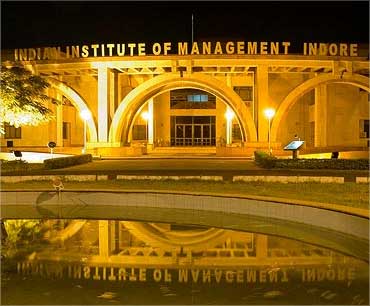
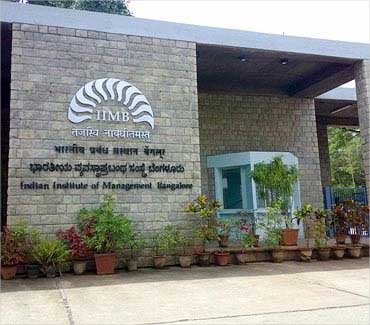

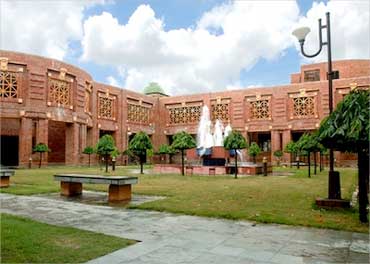
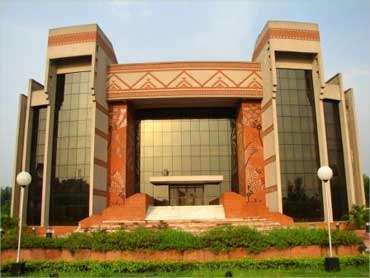
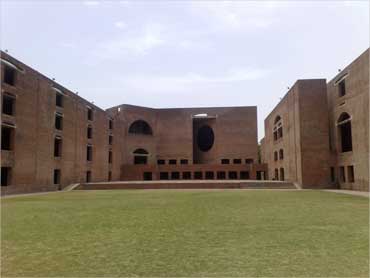


article